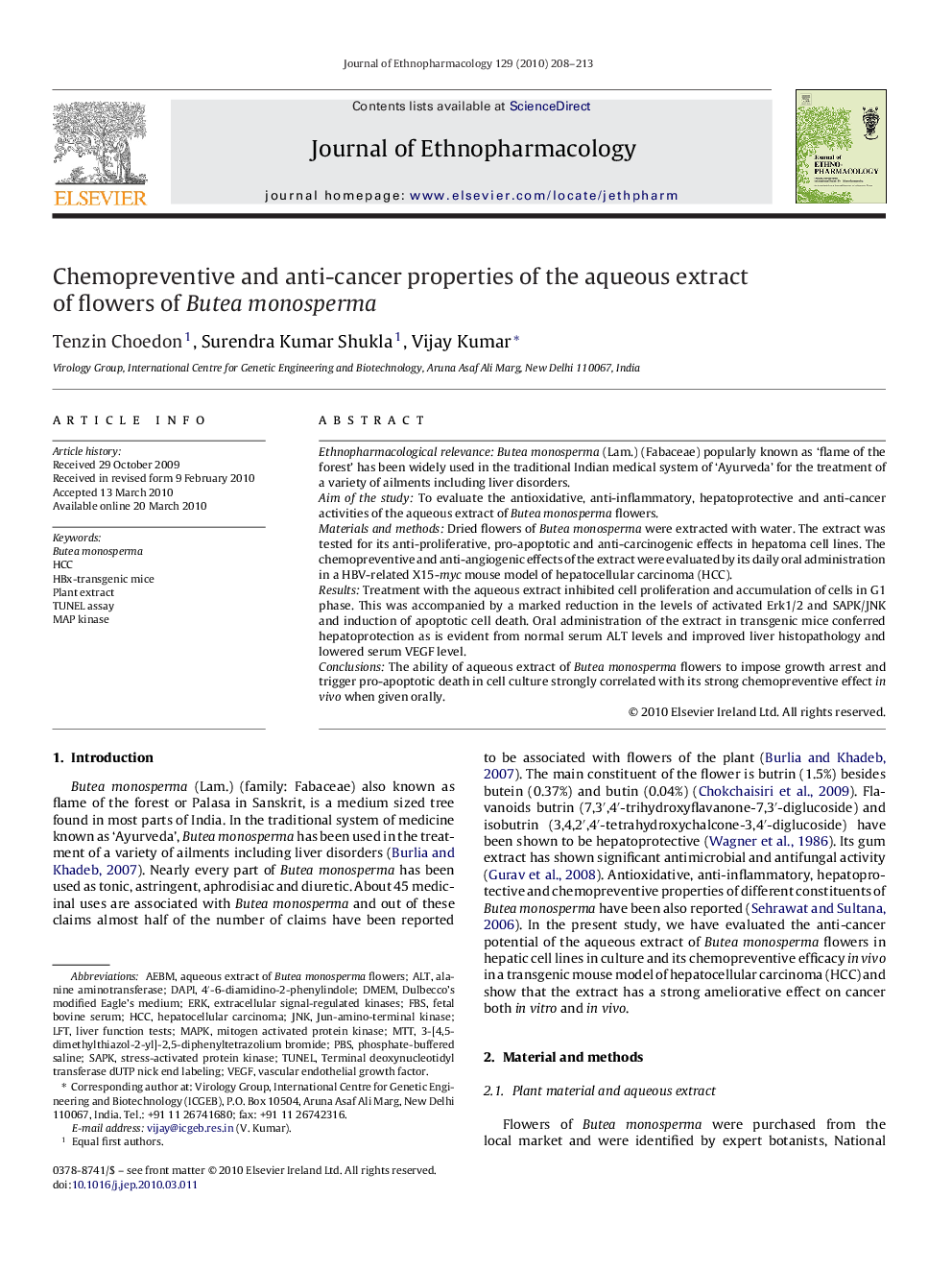| Article ID | Journal | Published Year | Pages | File Type |
|---|---|---|---|---|
| 2546280 | Journal of Ethnopharmacology | 2010 | 6 Pages |
Ethnopharmacological relevanceButea monosperma (Lam.) (Fabaceae) popularly known as ‘flame of the forest’ has been widely used in the traditional Indian medical system of ‘Ayurveda’ for the treatment of a variety of ailments including liver disorders.Aim of the studyTo evaluate the antioxidative, anti-inflammatory, hepatoprotective and anti-cancer activities of the aqueous extract of Butea monosperma flowers.Materials and methodsDried flowers of Butea monosperma were extracted with water. The extract was tested for its anti-proliferative, pro-apoptotic and anti-carcinogenic effects in hepatoma cell lines. The chemopreventive and anti-angiogenic effects of the extract were evaluated by its daily oral administration in a HBV-related X15-myc mouse model of hepatocellular carcinoma (HCC).ResultsTreatment with the aqueous extract inhibited cell proliferation and accumulation of cells in G1 phase. This was accompanied by a marked reduction in the levels of activated Erk1/2 and SAPK/JNK and induction of apoptotic cell death. Oral administration of the extract in transgenic mice conferred hepatoprotection as is evident from normal serum ALT levels and improved liver histopathology and lowered serum VEGF level.ConclusionsThe ability of aqueous extract of Butea monosperma flowers to impose growth arrest and trigger pro-apoptotic death in cell culture strongly correlated with its strong chemopreventive effect in vivo when given orally.
Graphical abstractFigure optionsDownload full-size imageDownload as PowerPoint slide
